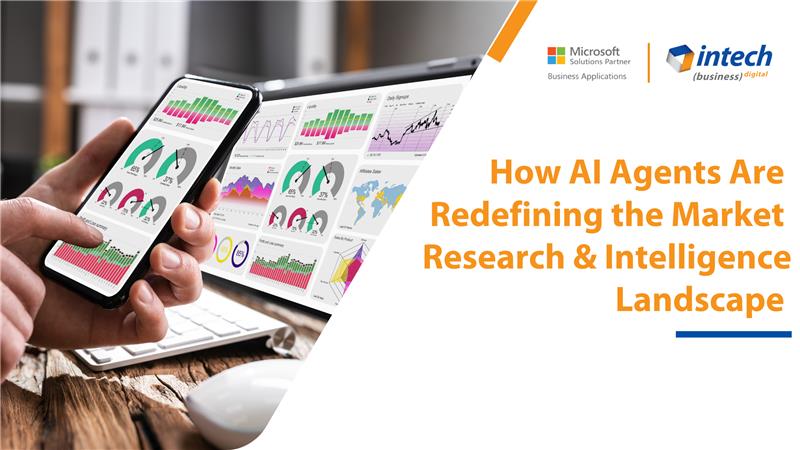Latest 2019 ERP Trends to watch for!
ERP software is remarkably one of the most valuable platforms that a company can rely upon for process synchronization, job optimization, and digital transformation. However, it is significant to look into the factors that can make your ERP implementation succeed or fail. As a fact, 96% of growing businesses who excel in their respective industries rely on an ERP system (Source: The Aberdeen Group).
Some of the factors are as below:
- General ERP Market trends
- ERP implementation factors
- ERP in SME trends and effects
- Cloud ERP statistics
And many more…
General ERP Market trends
The organizations of all types and sizes face challenges like rising costs, resource constraints. Besides the loss of subject matter experts, the inclusion of additional process, and optimal use of resources.
Analytics, data integration, process optimization, and compliance are currently trending features across various industries.
As per the Forrester report, practically, ERPs like Microsoft D365 BC, F&O has real-time data analysis, automation, and streamlined processes which helps in enhancing forecasts, improving quality, waste reduction, and preventing delays — therefore at the end it results in reduction COGS by ~10% and improving margin by ~3%, not huge in terms of percentage but in numbers it matters by looking at the benefits it provides.
As per the Nucleus Research report, in its Spring 2018 release, Microsoft provided improvements in analytics, data integration, extensibility, customization, supply chain optimization, and compliance.
ERP implementation factors
Project cost:
It is difficult to estimate the exact cost associated with ERP implementation. It is equally difficult to estimate the actual outcome and the benefits of an ERP implementation.
Budget overruns:
It is one of the biggest factors that affects an ERP project and its ROI. According to a report by Panorama consulting, nearly half (45%) of all ERP projects have faced budget overrun issues. Why? Below are the major reasons for budget overruns (Source: Panorama consulting):
- The initial project scope was unclear and expansion comes later (43% respondents)
- Underestimation of consulting fees (38% respondents)
- Unanticipated organizational issues (33% respondents)
- Unanticipated technical issues (33% respondents)
- Unrealistic project budget (33% respondents)
- Underestimation of project staffing (29% respondents)
- An additional requirement of technology requirement (14% respondents)
- Others (10% respondents)
ROI:
ROI always stays at the center point of any ERP project. But the actual benefits of process synchronization, ease of finance handling and many other benefits which are difficult to estimate at the early stage.
Other points we need to keep in mind while ERP implementation is, the average time of ERP implementation has increased from ~16 months to ~ 17.5 months.
It is also known that ERP implementation depends upon various factors such as the experience of your partner. In fact, as per the research by Panorama, it is estimated that 30% of all ERP implementations take longer than estimated and 50% of all ERP implementation even fails its first UAT. ERP implementation cost can also rise, up to 50% more of your budget because of inefficiency at UAT and related activities.
ERP in SME trends and effects
SMBs prefer using standard ERP systems like Microsoft Dynamics 365 Finance & operations, Business Central instead of standalone local solutions. Because standard ERP solutions provide all sort of timely upgrades and integrations which can result into reduction of operational costs by 11%, standardize back-office processes by 77%, and give them real-time visibility into their data by 48%
Cloud ERP statistics
First let us ask a fundamental question: WHY CLOUD?
Many ERP solutions are available in the market, and there are some which are cloud-based such as Microsoft Dynamics 365 Finance & Operations, Business Central. Now let us talk about how this D365 F&O, Business Central or in general cloud-based ERPS, have advantages over various locally hosted ERPs
Quick Implementation:
Installation of new hardware requires higher investments and it is also time-consuming. On the other hand, it is also slower in updating. Where cloud-based systems that utilize the web, pre-installed ready to use systems by big providers such as Microsoft. Updates implementations are without much hassle too
Feature accessibility:
As it is on the cloud, all features are available and timely updates gives accessibility of all latest available features
Data and Integration enhancement:
Locally hosted ERPs generally lack in data accuracy. It is also very difficult to move data from a locally hosted ERP. However, for a cloud-based ERP system, data can be easily moved from one module/system to another
Cost reduction:
For cloud-based ERPs, maintenance of physical servers, the hardware is out of the question. So, the cost of its maintenance and timely hardware upgrades are taken care of by the ERP solution provider
Data Security:
Data security is main while choosing cloud-based ERP. With data being strictly web-accessible, data-breaching becomes a legitimate concern. Having said that, ERPs like Microsoft D365 F&O, Business Central is hosted on Azure. Decades of experience have set Microsoft apart and allowed them to create the most cost-effective, secure and reliable solutions.
Microsoft Azure has capitalized on all this experience and industry-leading cybersecurity values. Microsoft publishes a list of security checks for developers to use in their code to create a uniform and secure code across all applications to make sure level of security for all its apps, cloud solutions, ERPs. The conclusion is whenever you are choosing an ERP implementer, make sure your partner has enough experience in the successful implementation.
About Intech
Intech Systems is a three-cloud Microsoft-certified partner that boasts deep expertise in providing digital transformation solutions for organizations by leveraging the Microsoft 365, Dynamics 365, and Azure solution stack. Intech is recognized as a top-tier Microsoft implementation partner globally and specializes in transformative technology solutions such as ERP (Enterprise Resource Planning), CRM (Customer Relationship Management), Business Process Automation, Business Intelligence, Cloud Infrastructure, Data Management, Productivity & Collaboration and Generative AI (Gen-AI) solutions. As a trusted Microsoft Solutions Partner, we are capable of doing complex technology implementations catered to an organization’s specific needs & also rapid solution implementation such as our Microsoft Dynamics 365 Business Central implementation packages. We pair our implementations with end-to-end customer support, offshore development & 3rd party integrations. With offices in India, USA (United States of America), and Singapore, we work with clients across globe to empower businesses with cutting-edge technology solutions. Our latest services aim at delivering business ready AI solutions to the customer, like our Microsoft Copilot Consulting Services & Solutions for small, medium & large enterprises. Intech’s expertise lies in building software solutions for Manufacturing, Professional Services & Healthcare. Our Dealer Management System, Sales and Service CRM for Manufacturing, Field Force Automation for Pharmaceuticals and Manufacturing Central are some of our leading industry solutions. Intech’s vision is to catalyze digital futures for operation-centric industries globally, we are at the forefront of innovation, helping organizations drive growth and innovation like never before. Contact Us to learn more.
Recent Post




How can we help? - Talk to Dynamics 365 experts for your concerns
What's New

Top Reasons to Replace Dynamics GP with Business Central [2025]
Introduction: The clock is ticking for businesses still operating on Microsoft Dynamics GP. While it...

How AI Agents Are Redefining the Market Research Landscape
Do you know your competitors are decoding consumer behavior in hours using AI agents that...

How Agentic AI Is Transforming the Manufacturing Industry [2025]
Introduction Did you know that 91% of manufacturers are planning to increase their investment in...




